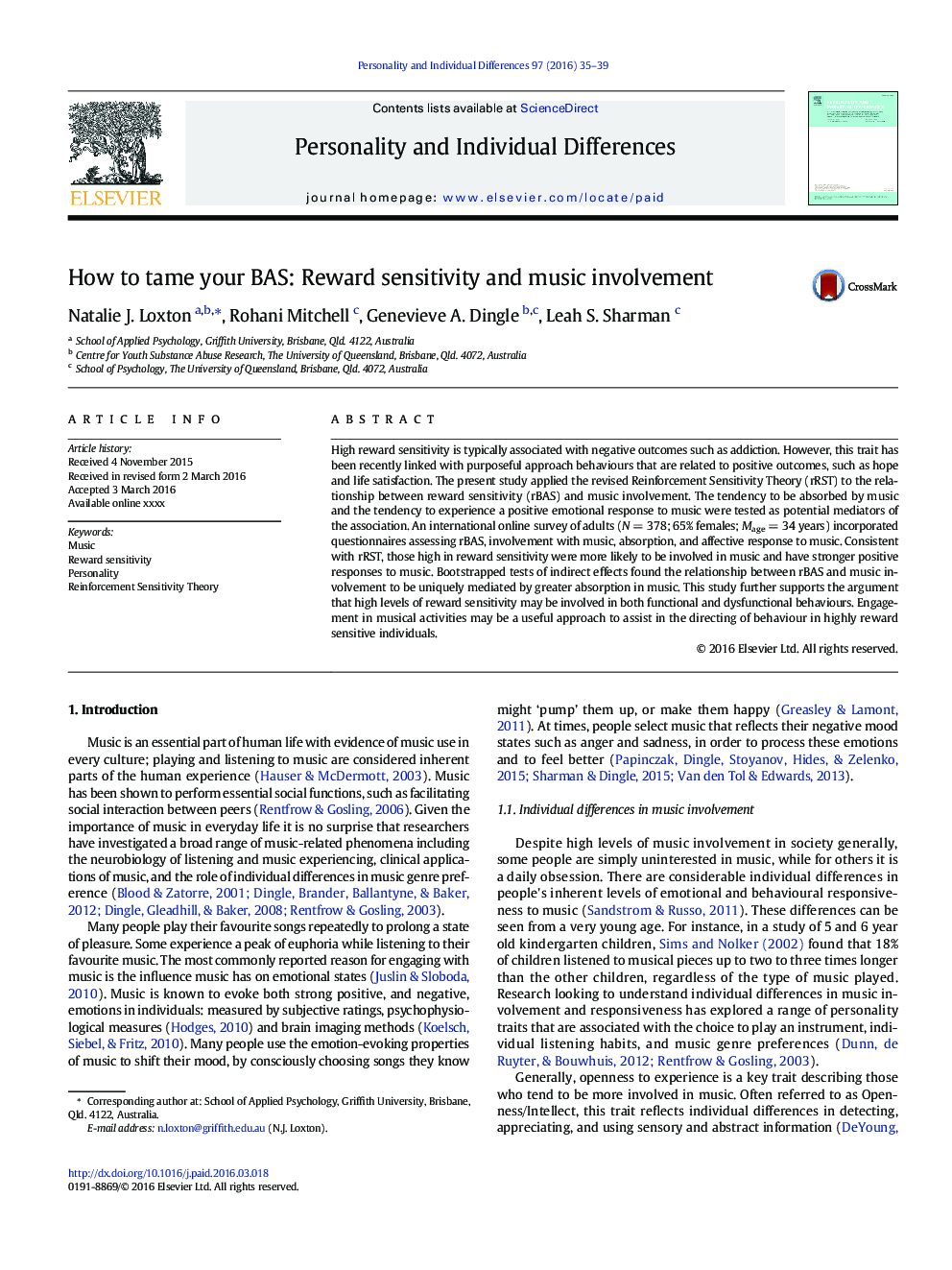| Article ID | Journal | Published Year | Pages | File Type |
|---|---|---|---|---|
| 7249914 | Personality and Individual Differences | 2016 | 5 Pages |
Abstract
High reward sensitivity is typically associated with negative outcomes such as addiction. However, this trait has been recently linked with purposeful approach behaviours that are related to positive outcomes, such as hope and life satisfaction. The present study applied the revised Reinforcement Sensitivity Theory (rRST) to the relationship between reward sensitivity (rBAS) and music involvement. The tendency to be absorbed by music and the tendency to experience a positive emotional response to music were tested as potential mediators of the association. An international online survey of adults (N = 378; 65% females; Mage = 34 years) incorporated questionnaires assessing rBAS, involvement with music, absorption, and affective response to music. Consistent with rRST, those high in reward sensitivity were more likely to be involved in music and have stronger positive responses to music. Bootstrapped tests of indirect effects found the relationship between rBAS and music involvement to be uniquely mediated by greater absorption in music. This study further supports the argument that high levels of reward sensitivity may be involved in both functional and dysfunctional behaviours. Engagement in musical activities may be a useful approach to assist in the directing of behaviour in highly reward sensitive individuals.
Related Topics
Life Sciences
Neuroscience
Behavioral Neuroscience
Authors
Natalie J. Loxton, Rohani Mitchell, Genevieve A. Dingle, Leah S. Sharman,
